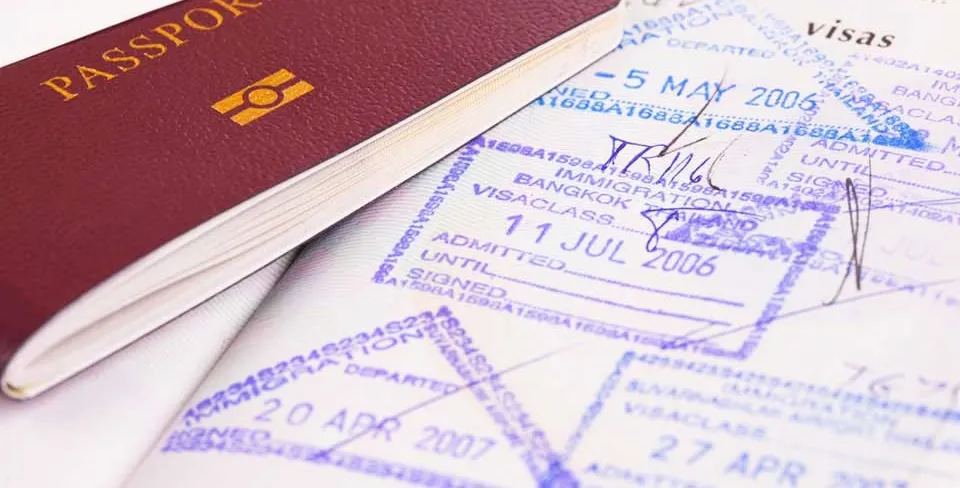A Comprehensive Guide to Different Types of Visas in Thailand
Thailand is a popular destination for tourists, expatriates, and digital nomads, offering a rich culture, stunning landscapes, and a warm climate. To enjoy all that Thailand has to offer, understanding the various types of visas available is essential. This guide will provide a detailed overview of the different visa options, their purposes, and application processes.
1. Tourist Visa
Overview
The Tourist Visa is designed for visitors who wish to travel to Thailand for leisure or tourism.
Key Features
- Duration: Typically valid for 60 days, with a possibility of a 30-day extension.
- Types:
- Single Entry: Valid for one entry into Thailand.
- Multiple Entry: Allows multiple entries within a specified period, usually valid for six months to one year.
Application Process
- Apply at a Thai embassy or consulate in your home country.
- Required documents typically include a passport, completed application form, proof of accommodation, and return flight tickets.
2. Non-Immigrant Visa
The Non-Immigrant Visa category is more versatile and is suitable for various long-term purposes, including work, education, retirement, and family visits.
2.1 Non-Immigrant “B” Visa (Business)
Overview
This visa is intended for foreign nationals working in Thailand or conducting business activities.
Key Features
- Duration: Generally issued for 90 days but can be extended for one year with a work permit.
- Eligibility: Requires a letter from a Thai company or organization.
Application Process
- Submit the application to a Thai embassy or consulate along with necessary documentation, including proof of employment.
2.2 Non-Immigrant “ED” Visa (Education)
Overview
This visa is for individuals enrolled in educational programs, such as language schools or universities.
Key Features
- Duration: Typically granted for 90 days, with extensions possible based on the duration of the course.
Application Process
- Requires an acceptance letter from a Thai educational institution and proof of financial stability.
2.3 Non-Immigrant “O” Visa (Other)
Overview
This visa category encompasses various purposes, including retirement, family reunification, and medical treatment.
Key Features
- Retirement: For those aged 50 and above, this visa requires proof of financial means or pension.
- Family: Allows for visiting family members who are Thai citizens or hold a long-term visa.
Application Process
- Documentation requirements vary based on the purpose but typically include proof of relationship or financial stability.
3. Elite Visa
Overview
The Thailand Elite Visa is a long-term visa program aimed at affluent individuals who seek to stay in Thailand for extended periods.
Key Features
- Duration: Offers options for 5 to 20 years of stay.
- Privileges: Includes services like airport assistance, expedited immigration clearance, and access to exclusive lounges.
Application Process
- Requires a membership fee, which varies depending on the duration and benefits chosen. Application can be done through authorized agents.
4. Work Permit
Overview
While not a visa per se, obtaining a work permit is essential for foreigners wishing to work legally in Thailand.
Key Features
- Eligibility: Typically requires a Non-Immigrant “B” Visa and a job offer from a Thai employer.
- Duration: Valid for one year and can be renewed.
Application Process
- The employer must submit a work permit application to the Ministry of Labor, accompanied by necessary documents, including the employee’s qualifications.
5. Marriage Visa
Overview
The Marriage Visa (Non-Immigrant “O”) is for foreigners married to Thai citizens.
Key Features
- Duration: Initially valid for 90 days but can be extended for one year with appropriate documentation.
- Requirements: Proof of marriage and financial stability.
Application Process
- Requires documentation proving the marriage, such as a marriage certificate, and evidence of financial means.
Conclusion
Thailand offers a diverse range of visa options to accommodate various needs and lifestyles, from short-term tourism to long-term residency. Understanding the specific requirements and processes associated with each visa type is crucial for a successful application.
Before applying, it’s advisable to consult the nearest Thai embassy or consulate for the most current information, as visa regulations can change. Whether you’re visiting for leisure, pursuing education, or planning to settle down, the right visa will enable you to fully experience the beauty and culture of Thailand.
Check out Properties in Thailand




